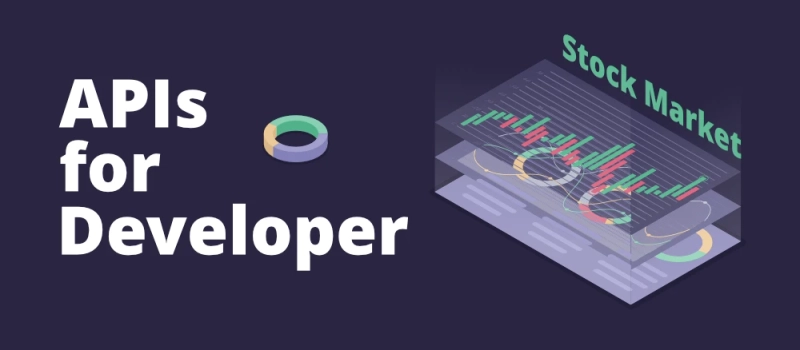Real-time stock market data APIs play a crucial role in modern financial analysis, providing access to up-to-the-minute market data that can inform trading decisions and market analysis. This article compares the features and pricing of leading real-time stock market data APIs to help you choose the best one for your needs.
What are Real-Time Stock Market Data APIs?
Real-time stock market data API are software interfaces that allow users to access real-time market data from stock exchanges around the world. These APIs provide a wide range of data, including stock prices, trading volumes, market trends, and more.
Importance of Real-Time Stock Market Data APIs
Real-time stock market data APIs are essential for traders, investors, and financial analysts who require up-to-date information to make informed decisions. These APIs enable users to access real-time data quickly and efficiently, helping them stay ahead of market trends and make timely trades.
Key Features of Real-Time Stock Market Data APIs
- Real-time Data Updates: Receive updates on stock prices and market trends as they happen.
- Historical Data Access: Access historical stock market data for analysis and backtesting.
- Customizable Data Streams: Customize data streams to receive only the information relevant to your analysis.
- Integration with Trading Platforms: Integrate APIs with trading platforms for seamless trading.
- Security and Reliability: Ensure data security and reliability to protect sensitive financial information.
Pricing Models of Real-Time Stock Market Data APIs
Real-time stock market data APIs offer various pricing models, including free, subscription-based, and pay-as-you-go models. The pricing depends on factors such as the volume of data and the frequency of updates.
Comparison of Top Real-Time Stock Market Data APIs
API Name
- Description: Brief description of the API
- Features: Key features offered by the API
- Pricing: Pricing model and cost structure
Factors to Consider When Choosing a Real-Time Stock Market Data API
- Data Accuracy and Reliability: Ensure the API provides accurate and reliable data.
- Compatibility with Trading Platforms: Choose an API that integrates seamlessly with your trading platform.
- Cost-Effectiveness: Consider the pricing structure and choose an API that offers value for money.
- Customer Support: Look for an API provider that offers reliable customer support.
- Security: Ensure the API provides secure data transmission and storage.
Real-World Applications of Real-Time Stock Market Data APIs
Real-time stock market data APIs are used in a variety of real-world applications, including algorithmic trading, financial analysis, risk management, and more. These APIs enable users to access and analyze market data in real-time, helping them make informed decisions and stay ahead of market trends.
In summary, Real-time stock market data APIs are essential tools for traders, investors, and financial analysts who require up-to-date market information. By comparing the features and pricing of top APIs, you can choose the best one for your financial analysis needs.
FAQs
Are real-time stock market data APIs free to use?
Some APIs offer free access to limited data, while others require a subscription or payment for full access.How often is real-time stock market data updated?
Real-time stock market data is updated continuously throughout the trading day, providing users with up-to-the-minute information.Can I use real-time stock market data APIs for algorithmic trading?
Yes, real-time stock market data APIs are commonly used for algorithmic trading, enabling automated trading strategies based on real-time market data.What is the difference between real-time and delayed stock market data?
Real-time stock market data is updated instantly as market events occur, while delayed data has a delay of several minutes or more.How can I integrate a real-time stock market data API into my trading platform?
Integration methods vary depending on the API provider, but most APIs offer documentation and support for integrating with popular trading platforms.


